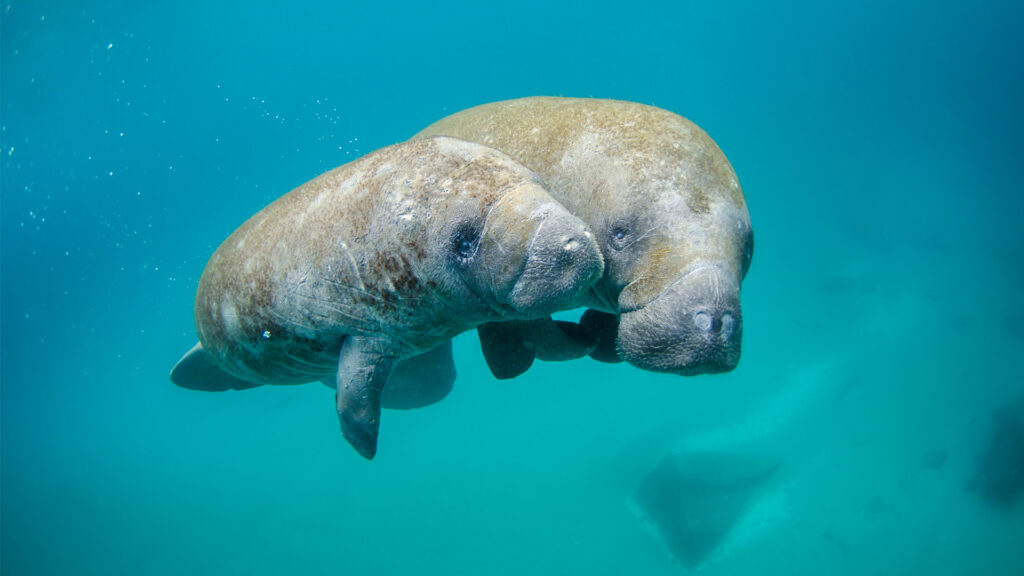A roundup of news items related to climate change and other environmental issues in Florida:
After historic die-off, drop in manatee deaths sparks ‘guarded’ optimism | Miami New Times

Following a historically fatal few years for Florida manatees, the deadly trend may finally be subsiding.
Preliminary data from the Florida Fish and Wildlife Conservation Commission (FWC) shows that roughly 520 manatees perished in 2023 — a significant decrease from previous years. Approximately 800 manatees died in 2022, and more than 1,000 perished in 2021, marking the deadliest year on record for the marine mammals.
The drop in fatalities is mostly due to a decrease in starvation among manatees in Brevard County, the epicenter of the die-off, says Pat Rose, executive director of the Save the Manatee Club.
Take a peek at NASA’s PACE spacecraft, which will study climate change and ocean health | Florida Today
An advanced NASA spacecraft designed to study Earth’s oceanic and atmospheric phenomena waits behind an airlocked door inside an environmentally controlled Titusville high bay, where white-suited technicians plan to start adding rocket fuel next week.
NASA’s PACE observatory — an acronym for Plankton, Aerosol, Cloud, ocean Ecosystem — arrived Nov. 15 at Astrotech Space Operations off Grissom Parkway. In orbit, PACE will gather “immense quantities of data” on the chemical composition, movement and interaction of airborne particles and clouds by scanning Earth with polarimeters every two days, NASA said.
“They measure light a little bit differently — they have polarized sunglasses on. So you’re not only seeing total intensity, like your eyes do. But you are seeing how vertical photons, or vertical energy, and horizontal energy actually change,” said Jeremy Werdell, a NASA PACE project scientist.
These creepy crawlies could be Florida’s next big invasive threats, scientists say | Miami Herald
Florida has long been home to an unnatural assortment of creatures from faraway lands and habitats, and these tourists turned permanent residents have wreaked havoc on the natural ecosystem.
You can thank the Burmese pythons slithering around the Everglades for the lack of marsh rabbits, and the Asian swamp eels are to blame for cratering populations of native crayfish and flagfish.
But what’s next?
If you have any news items of note that you think we should include in our next roundup, please email The Invading Sea Editor Nathan Crabbe at nc*****@*au.edu. Sign up for The Invading Sea newsletter by visiting here.



